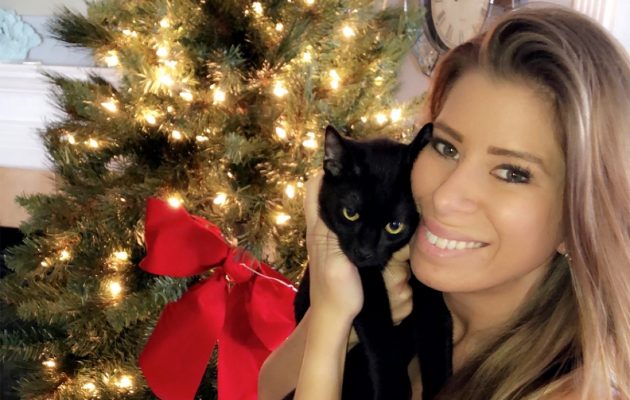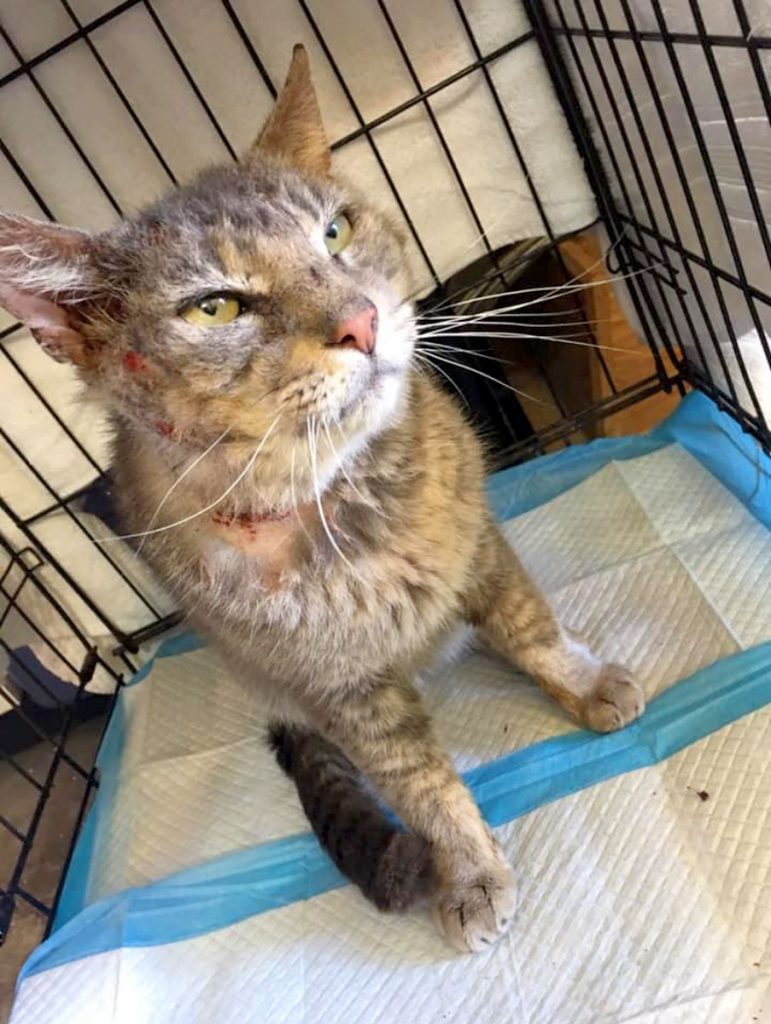Local Folks: Kellie Turner

They’re not “crazy cat ladies” even though they’ve been called such. “We’re clearly not crazy. We’re just empathetic. We have hearts,” said Kellie Turner of her and other Jacksonville women’s efforts at TNR.
TNR stands for Trap-Neuter-Return. It’s a process of humanely reducing the number of free-roaming cats in the neighborhood. A cat is trapped after being lured into a cage with food. The feline is then taken to a veterinarian for neutering, otherwise known as spaying for females, so that the animal is unable to reproduce. Post-surgery, a cat is socialized to be adopted out as a pet. If it cannot be, it is returned to its colony, its outdoor family.
Feral cats are not used to human contact. Most feral colonies originated from unneutered stray cats, which are ones that were once domesticated but then were abandoned or got lost.
Turner’s kinship with cats began when she was in fifth grade and adopted two white Siamese kittens from the litter of her friend’s cat. As an adult, for eight years, Turner worked alone with a colony of cats near her home in the Atlantic and Hodges Boulevards area of Jacksonville. She would feed the cats, catch the kittens to adopt them out, and try to trap the adult members for neutering. But she was unsuccessful at getting them all, so they continued to reproduce.
Nearly three years ago, someone fed rat poisoning to the colony. “I just couldn’t stand back and watch,” Turner said. She met up with Monika Johnson to assist in her efforts of trapping the cats and rehabbing them on Turner’s screened porch until they could be either adopted out or returned to the colony. “It was a nightmare,” Turner said. But she could not in good conscience let the helpless animals suffer and die.
Turner and Johnson paid out of their own pockets thousands of dollars in vet bills and then reached out on GoFundMe. Supplies and prescriptions are not free. The ladies nursed, tamed, and found homes for at least 20 kittens and cats that someone had tried to kill. And Turner’s TNR mission continues.

On her porch, she still keeps cat towers and heated beds. In her garage, she keeps crates. Residing there are rescued felines that are not adoptable as house pets and are not yet well enough to be released. She currently has seven cats ready for adoption. And there’s a consistent turnover.
She receives calls daily from residents in San Marco and beyond about stray, sick, and injured cats that need rescuing. Some are left behind in apartment buildings when their owners move out. Others are seen dodging traffic. Recently, two kittens were dropped off at a McDonald’s drive thru.
“San Marco has a really big issue with stray cats right now, San Marco and Riverside,” Turner said. In a single month, she could trap 25 or more cats in the area, bring them to be neutered, and return them back to their territory if they are not adoptable.
Turner is currently working with a group of 12 ladies Jacksonville whom she met through Facebook groups within the last six months. “We do this all out of our own time, money, and efforts. We’re not funded by anybody. We don’t have any financial support. We’re doing it out of love for the cats,” Turner said. She and the other ladies are trying their best to control the population. “We need more help,” Turner said.
She pointed out that it’s great when people feed cats they see roaming outside. It takes more than that though. “They’ve got to be fixed. And they can do that for free,” she said, if they are brought into a vet’s office in a trap. Turner loans out her traps to people who are willing to do that. “You’re giving them a better quality of life when you fix the ones you’re feeding,” Turner said. She even builds shelters for the cats out of plastic storage totes and lines them with fuzzy blankets or straw.
Turner urges anyone who sees an injured animal to please reach out to Jacksonville’s Animal Care and Protective Services (ACPS) via email at [email protected] or by phone (904) 630-CITY (2489) for assistance. There are also Facebook pages to reach people who are willing to help humanely trap cats by baiting them with food, which is how Turner met the ladies she’s currently working with.
“Be kind to the ones that can’t help themselves. Cats aren’t born feral. They become feral because we don’t take care of them,” Turner said.
By Mary Wanser
Resident Community News






